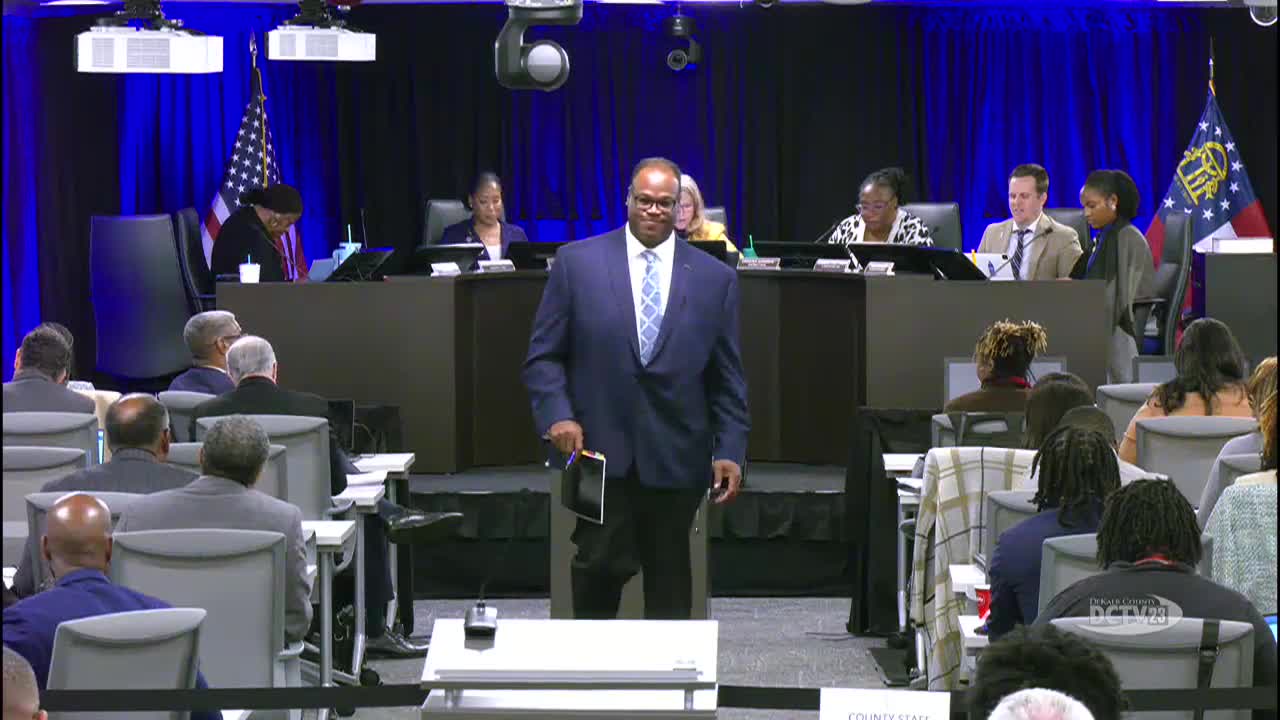DeKalb youth commission pitches little‑libraries, small‑business expo and mental‑health events to county commissioners
Get AI-powered insights, summaries, and transcripts
Subscribe
Summary
The DeKalb County Youth Commission told commissioners it selected 35 youth from 207 applicants for the 2025 cohort and proposed neighborhood little‑library hubs, a teen small‑business expo, plastic‑reduction ideas and mental‑health mixers; staff asked for commissioner support for funding and partnerships.
Director and staff from DeKalb County’s Office of Youth Services presented the county’s Youth Commission to the Board of Commissioners on Nov. 4, outlining the program’s purpose, cohort size and several youth‑led proposals for the year.
The Office of Youth Services said the commission dates to 2008 and that the current cohort includes 35 youth commissioners chosen from about 207 applicants; staff reported 100 applicants were interviewed and 75 submitted additional written prompts before the final selection. "We chose 35 youth commissioners to be a part of the cohort this year," staff stated when recounting the selection process.
Olashaya Agbola, president of the DeKalb County Youth Commission and a senior at Chamblee High School, called out literacy gaps and proposed installing small neighborhood "little library" hubs paired with volunteer reading sessions and family literacy workshops. "By working together, we can make sure every young person in DeKalb County has access to books, mentorship, and the support they need to thrive," Agbola said.
Other youth commissioners proposed waste‑reduction policies modeled on European bag fees and compostable packaging, a small business expo to showcase teen entrepreneurs, and mental‑health mixers to connect youth with resources. Charlei Dennis, a youth commissioner from Miller Grove High School, described starting a small acai‑bowl business as an approach to both entrepreneurship and food‑access awareness and asked for help connecting to community programs and local funding.
Commissioners welcomed the presentation, praised participating students and suggested concrete next steps: pairing youth proposals with staff to draft legislative or budget requests, using Board channels to advertise youth events, and exploring capacity for a larger cohort or additional programming. The board’s finance and operations leads offered to help translate youth ideas into possible resolution language or budget items.
The youth presenters closed by asking for commissioners’ support—publicity, logistical help and, where appropriate, modest funding or access to county venues—and commissioners signaled willingness to follow up and work with central staff to move promising ideas toward implementation.
